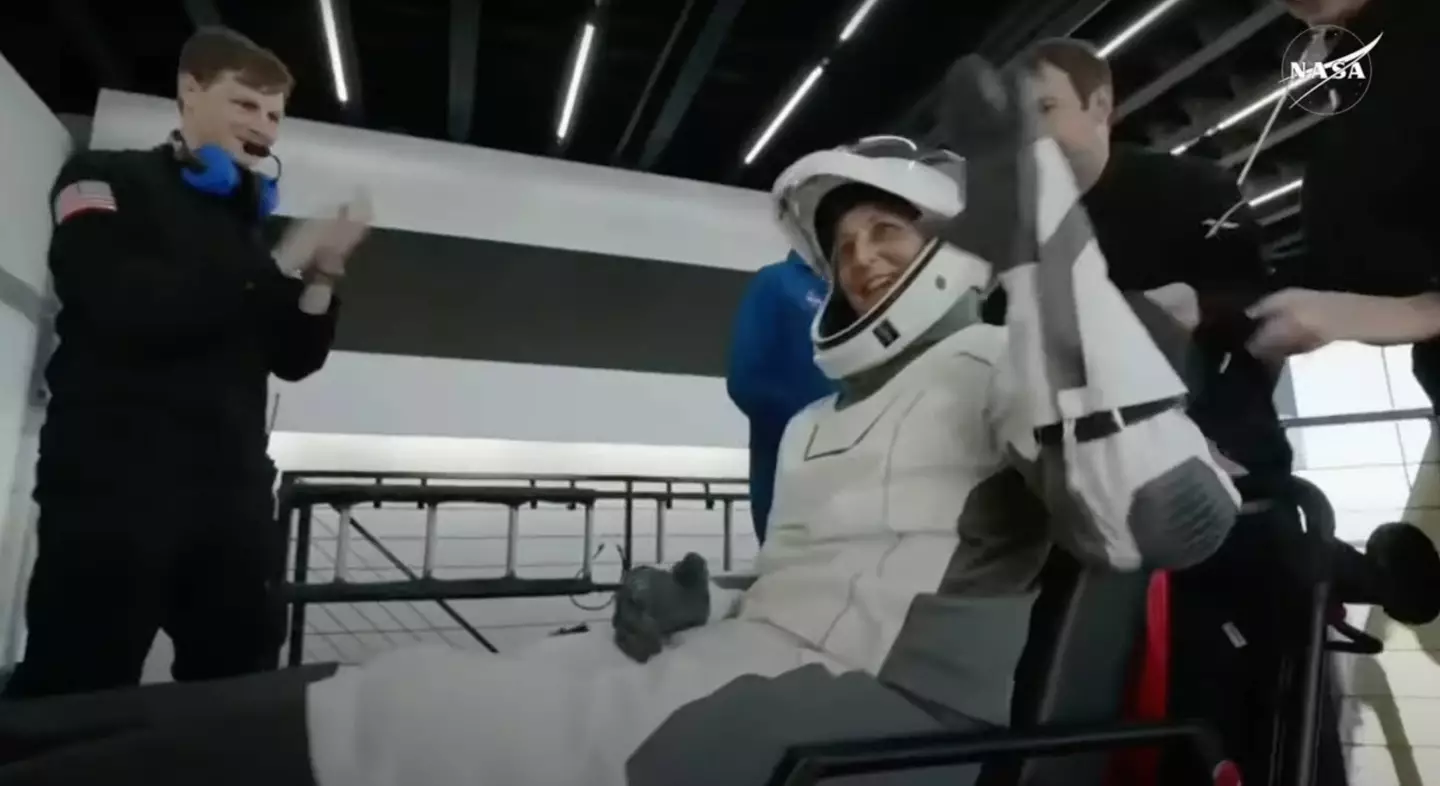
While Suni Williams and Butch Wilmore have insisted they weren't 'stranded' in space when issues with their Boeing Starliner led to them spending an extended 286 days on the International Space Station, it’s a story that’s gripped the world. Blasting off in June 2024, the pair were originally only supposed to be aboard the ISS for eight days.
Although their damaged craft was flown back empty from space and a new one with two spare seats docked in September, they still had to wait for a relief crew to take over their duties. The long-awaited Crew-10 team finally made it to the ISS in emotional scenes, and before long, Williams and Wilmore were heading home.
There were concerns when Williams and Wilmore were quickly taken away on stretchers following their March 18 landing, although this is standard procedure for those returning from a long time in space.

Advert
There were further worries about Williams' health when she was spotted with an IV in her arm, although one doctor has said they could be back to their selves in just a matter of weeks. In the meantime, the pair are taking part in a 'brutal' 45-day recovery regime that will hopefully speed up the process.
In terms of what after-effects they'll be feeling, the University of Florida is conducting ongoing research into spaceflight-associated health changes. This being led by Rachael Seidler, Ph.D., who has highlighted five key changes Williams and Wilmore could be facing.
Seidler reiterated: "While the physical and psychological challenges astronauts face after returning from long-duration space missions are well-documented, the research we do at UF is helping us understand the intricacies of their recovery process.
“By following astronauts like Butch and Suni before, during, and after their missions, we can track how the human body responds to the extreme conditions of space."
Highlighting several likely problems, Seidler said: "One of the most immediate challenges astronauts face when they return to Earth is mobility and balance. These issues often recover more quickly compared to others, but it takes time for astronauts to readjust to gravity.
"The balance, mobility, and walking difficulties astronauts experience during the first weeks back are typically resolved in a short period, but brain function and structure require longer recovery periods."
There's also the issue of brain function taking anywhere between one and six months to return to pre-flight levels. Some aren't as quick to undo, with Seidler adding: "Brain structural changes, particularly related to fluid shifts in space, show little to no recovery even after six months to a year."
These changes include the brain sitting higher in the skull and also experiencing expanded ventricles by a volume increase of 25%.
The research hopes to help us understand the post-flight recovery of astronauts, with the team tracking astronauts for up to five years.
There's a particular focus on Spaceflight-Associated Neuro-Ocular Syndrome, which is a common sight issue in up to 70% of astronauts.
Looking further ahead at the likes of Elon Musk's plans to colonize Mars, Seidler said: "We're studying these issues now to ensure that future astronauts are prepared for the physical and cognitive challenges that await them in deep space."
While Williams and Wilmore are potentially facing lifelong issues from the 286 days in space, at least it sounds like they're being looked after.